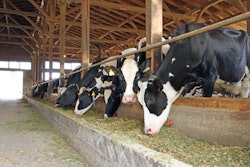
On November 14, lawmakers in the U.S. House of Representatives approved a spending bill that included a one-year extension of the current farm bill. The bill now heads to the Senate.
The one-year extension makes sure commodity programs can operate normally in 2024. The farm bill is reviewed every five years to provide the opportunity to update programs to remain relevant to current market and economic conditions. The current bill technically expired on September 30.
Four leaders of the House and Senate Agriculture Committees -- Senator Debbie Stabenow, Senator John Boozman, Representative Glenn "GT" Thompson and Representative David Scott -- expressed their commitment to avoiding a lapse in funding for key agricultural programs by extending the farm bill.
"As negotiations on funding the government progress, we were able to come together to avoid a lapse in funding for critical agricultural programs and provide certainty to producers," the statement read.
The leaders emphasized that this extension should not be seen as a substitute for passing a 5-year farm bill. They reiterated their commitment to working together to pass the comprehensive legislation next year.
According to reports, lawmakers are still working on the 2023 farm bill and were hoping to have it done by the end of the year. The Texas Farm Bureau noted in a statement that an extension is necessary to avoid reverting to laws dating back to 1938 and 1949 and consumers seeing major increases in the price of milk, wheat and other commodities.
“Farmers and ranchers across the country depend on the farm bill, especially as they face unprecedented weather and staggering input costs," said Texas Farm Bureau President Russell Boening. "The last thing they need is a lapse in funding of this critical safety net."
















